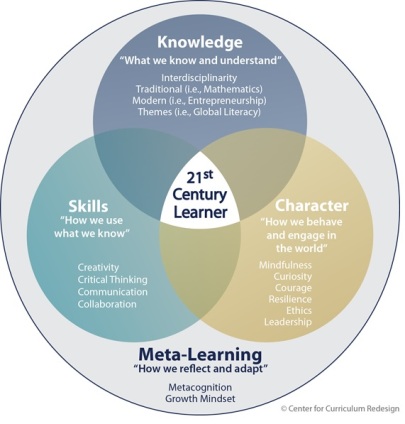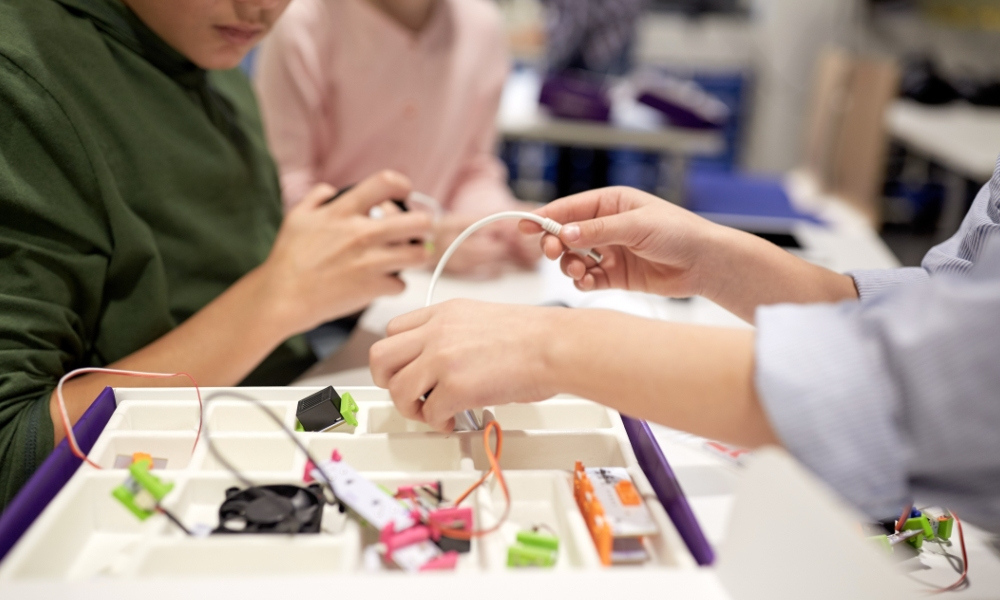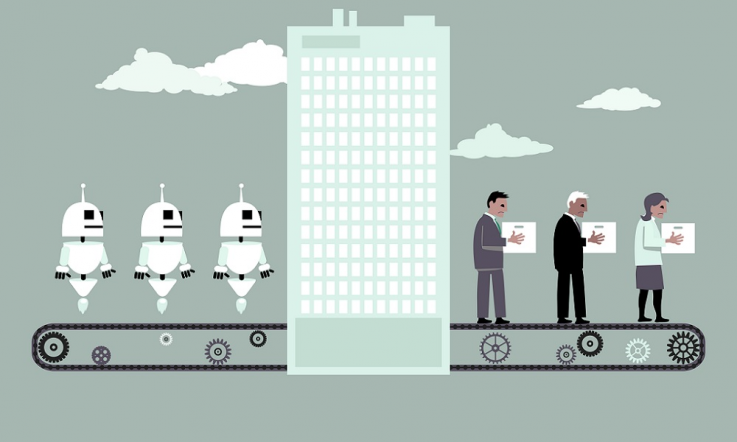Research has indicated that young people today are likely to have 17 jobs over five different careers after they leave school. Charles Fadel is a pioneer of the idea of 21st Century skills, founder of the Center for Curriculum Redesign, and visiting scholar at the Harvard Graduate School of Education. He's also delivering the 2017 Australian Learning Lecture – The New Success – this month. Teacher caught up with him ahead of his visit to Melbourne.
Research has indicated that young people today are likely to have 17 jobs over five different careers in their lifetime. So, what are the kinds of skills that they'll need in order to thrive in that environment?
Well, it seems to be very natural that they would, at the minimum, have versatility. You know, the ability to go from one to the other to the next job and/or career. That versatility implies, in a sense, a broad and deep education. Deep in the sense of deeper learning of the existing disciplines … whether it's Mathematics or Humanities or whatever. But, also more modernised knowledge [in areas] such as entrepreneurship and robotics and wellness and so on – which all matter in today's world and certainly for tomorrow's world as well.
In addition to all of this, in addition to modernised knowledge in general and deeper knowledge, it's also a question of how we use that knowledge. So, our learners will need their skills developed … creativity, critical thinking, communication and collaboration.
And above and beyond that, if you reflect about what makes people successful in life it is also how they behave and engage with the world, right? So, their mindfulness, their curiosity, their courage, their resilience, their ethics and their leadership.
And, lastly, and quite importantly in a world that's constantly changing, the ability to reflect and adapt and continuing to learn how to learn comes at a premium. So, the students' metacognition and growth mindset would need to be developed.
All in all, there you have it: four dimensions that make for a deeper, more robust and versatile education which is about modernised knowledge, skills, character and meta learning. In my recent book with Bernie Trilling (Four-Dimensional Education: The Competencies Learners Need to Succeed) we describe a complete range of competencies (beyond just skills) needed for new success.

[Diagram © Center for Curriculum Redesign]
Given that we're already in 2017, why do you think we're still grappling with the issue of 21st Century skills and how to develop that 21st Century approach to education?
Well, obviously these requirements date back to ancient Greece and ancient China – actually, ancient civilisations in general. We've always needed, as humans, to function with all these dimensions of ourselves in our education. It's just that in the 21st Century it's becoming all the more critical because of the advance of, in particular, artificial intelligence, to start doing more and more of the human functions. We saw the first, let's say, ‘displacement' back with the Industrial Revolution, due to mechanisation and automation. Now, with increased intelligence of devices and robots and so on a lot of occupations will be, if not displaced, at least significantly augmented. And so, like during the Industrial Revolution, we need to upskill ourselves and we're facing several impediments to do that:
- Obsolete university entrance requirements, which bias what we can teach;
- Narrow assessments focused on traditional knowledge only;
- Lack of political courage due to a lack of understanding by the general population of the risks of NOT moving forward;
- Narrow-mindedness of academic experts, not behaving altruistically to look beyond their personal expertise to the overall needs of society and employability; and,
- Lack of training of teachers to the new requirements.
All of which need to embrace the required changes.
You're in Melbourne on May 11 to give the second Australian Learning Lecture. Is there a country that's leading the way in this area of 21st Century skills, and where does Australia stand in respect of this?
Interestingly, there's research by the Brookings Institution showing that just about any country out there they have surveyed talks a good game about all of these things. And, there's a large difference between saying that you want to teach these skills and character qualities and so on versus doing it in a deliberate, comprehensive, systematic and demonstrable way.
So, the good news is that there's no one ahead of Australia. Everyone is trying to do this and this opens an opportunity for Australia to lead the way.
What is required is a massive rethink about modernising what students learn as an imperative. Where Science, Technology, Engineering and Maths (STEM) matter increasingly but Humanities and Arts remain essential, each borrowing from the other, for a deeply versatile education. Where working with others, at school, in the community, and in the workplace is as vital as ensuring growth at every level, allowing top students to thrive while assisting all students in areas where they are struggling. Where young people are given the skills and qualities they need to thrive in work and life. There is general acknowledgement around the world that to equip young people for success we need to shift from a knowledge-only based education towards incorporating skills such as creative problem solving, collaboration and character skills such as resilience, agility, compassion and respect. These elements are central to the new success.
In your lecture you'll be talking about the ‘new success' – what do you mean by that and what does it look like?
Well, it looks like a fulfilled individual with a sustainable society, a sustainable humanity. It's what we all aspire to. As humans, we've always wanted a world that was more fair, where everyone was thriving rather than reacting, where we would tone down conflict – a more civilised world, in essence. But that's not going to come without a significant rethinking of what we teach and not only at the cognitive level, but the social and emotional level.
The secrets to the New Success for today's and tomorrow's child are:
- a move to skills, rather than scores: broader measures of success to monitor students' capabilities... and the quality of our education system;
- teachers supported to teach for future success;
- parents who understand what success looks like today and tomorrow;
- universities that broaden their entrance requirements to reflect the capabilities that matter to future success; and,
- politicians with the courage to plan long-term (‘cathedral builders').
Finally, the New Success is about fulfilled individuals for sustainable societies. It corresponds to all of Maslow's pyramid of needs, from most basic to self-transcendence, which are universal human aspirations. It is anticipatory not reactive, sharing not greedy, thoughtful not angry, and communal not clannish.
Given that things are changing so rapidly, can education systems actually change quickly enough to keep pace? Or, is it more about us teaching students the skills and coping mechanisms to deal with, and make the most of, change? You mentioned flexibility earlier.
This is really an excellent question. It keeps me up at night quite honestly, whether education systems can catch up fast enough. You know, I'm not concerned that what we're proposing here is too ambitious, I'm concerned that it's not moving fast enough in its implementation – that's what keeps me up at night.
So, you start thinking, well, are there alternatives? If you can think of one I'm all ears, but I don't know of one. We have to succeed or we will be witnessing a lot of social unrest.
The safest option is to change and not to remain immobile.
Now, whether teaching students coping mechanisms … that's fine, that's part of what we all need to do to – how do we cope with stress and changing situations and so on – but it's in no means a palliative. It's part of a broader education, but it doesn't preclude systems of doing what they have to be doing, which is education with a capital ‘E'.
So we need to act quickly, basically. But, as you mentioned earlier, that requires political will and … people to make decisions that may not be popular with everybody?
But it's possible to lead; and, also educating the public. And what you're doing here [at Teacher magazine], educating the teachers, educating the public at large, is absolutely critical. Because, it's easy to long for the good old days that will never exist again and for ways of doing that might have been perfectly adequate 50 years ago, but certainly no longer are. And so, the safest option is to keep moving forward and not to remain immobile.
Finally then, drilling down from the big picture, from those governments and systems that we've talked about, to individual teachers, leaders and schools – what can they do?
From the teacher perspective, every teacher has a little bit of sway, in their hours of the day and so on … everyone has a little bit of headroom, about say 20 per cent of the time could be diverted away from just teaching [traditional content] to pay more attention to its deepening through skills acquisition. And there are a variety of organisations and methods out there to help teachers do some of that, which really would be better than nothing. But there's only so much teachers and even administrators can push that envelope.
We need an Australia that believes that the safest option we have for our kids is to educate them to learn, unlearn and relearn in our fast-changing world. We need forces beyond school to assist, not hamper, this process.
Charles Fadel will deliver the second Australian Learning Lecture – The New Success – on 11 May 2017 at the Melbourne Exhibition and Conference Centre.
With a colleague, draw up a list of skills and attributes that you think your students will need in order to thrive in the future. How are you helping students develop those skills and attributes?
Charles Fadel says students will need knowledge in traditional disciplines, but also areas such as entrepreneurship, robotics and wellness. How are you planning for and meeting these needs at a classroom and whole school level?



